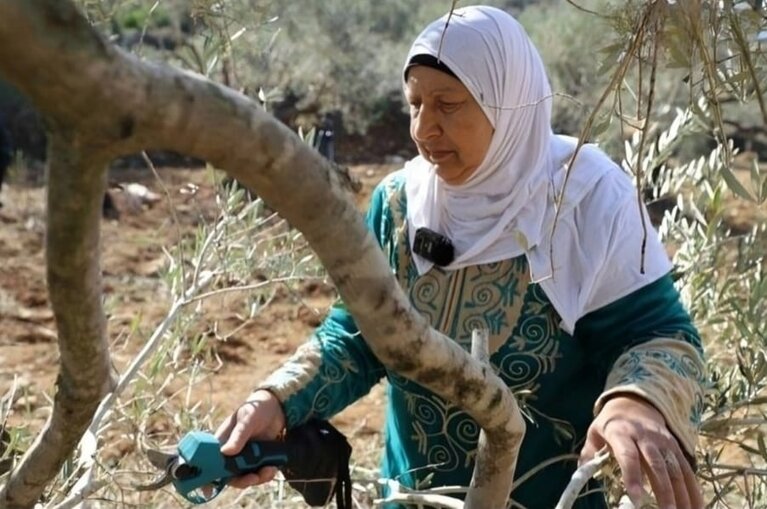Overcoming Restrictions and Violence with Community Support
Najma, a farmer from the village of Yasuf, northeast of Salfit, in the West Bank, has spent her entire life tending to her family’s olive trees. However, in recent years, accessing her own farmland has become a daily struggle.
Surrounded by four Israeli settlements, Kfar Tapuah, Rechelim, Nofei Nehemia and Ariel, Najma’s village has faced repeated settler attacks, land confiscation, and severe farming restrictions. This is because these agricultural lands are in Area C, where the Israeli authorities retain exclusive control over planning and zoning, and over law enforcement. Each olive harvest season, in order to access the land, Najma must secure special permissions from Israeli authorities. At best, this will afford her a few hours of access per day. As a result, in some years she could only harvest some 20 per cent of the crops, she says.
The Agricultural Development Association (PARC), a local NGO, with financial support from the oPt Humanitarian Fund (HF), provided essential agricultural tools to over 1,400 households owning some 15,000 dunums of olive-planted land. The support aimed to improve efficiency and productivity in areas most affected by violence. The distributed tools—including olive harvesters, pruning shears, ladders, tarps, and olive oil storage containers—aimed at alleviating some of the burdens faced by farmers struggling to access their land.
Holding the olive harvester and electric shears in her hands, Najma felt a sense of relief. “Maybe today, we’ll make real progress,” she thought. The new tools allowed her to work faster and more efficiently, yet the risks remained: settlers could arrive at any moment to threaten her or damage her harvest. For Najma, harvesting olives was more than just collecting fruit; it was about staying connected to her land and preserving her livelihood and family heritage.
As the harvest progressed, volunteers recruited through PARC joined Najma in the field, along with several local women. What had once been a slow, solitary task became a communal effort, with farmers working together to complete one field before moving to the next. The collaborative system, coupled with the new tools, maximized productivity and strengthened social bonds among the villagers.
By the end of the season, Najma had managed to collect 80 per cent of her olives in just 12 days, she says.
“The support we received, not only improved the harvest but also fostered resilience and collaboration among farmers facing similar challenges,” Najma reflected.










